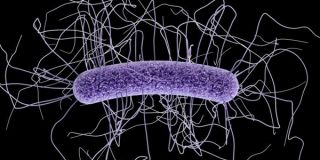Sexual desire is not simple. In both men and women, many factors influence general level of libido such as age, health, stress, sleep, relationship problems, mental health and hormones.
Clinicians and researchers alike have explored hormones in particular, hoping that artificially elevating levels of sex hormones such as testosterone, progesterone and estrogen might restore sexual desire and satisfaction in people who have lost it.
Testosterone treatments, for example, have been shown to increase libido in both men and women (women naturally secrete testosterone from their adrenal glands and ovaries) although, unfortunately, the treatments do not work in everyone for reasons that are poorly understood. One theory is that artificially administered testosterone does not have the same effect on the brain and body as testosterone produced naturally inside the body.
If this is true, then it might be possible to achieve better results restoring sex drive in both men and women by increasing naturally produced testosterone.
A novel way to do this could be to bypass the testes, ovaries and adrenal glands that are known to produce testosterone, and work instead with a newly discovered source of ”natural” testosterone, the bacteria in our guts.
Drs. Jason Ridlon and Phillip Hylemon at the Virginia Commonwealth University have found that the naturally occurring gastrointestinal bacteria, Clostridium scindens manufactures male sex hormones including testosterone.

If it were possible to safely increase the population in our guts of Clostridium scindens, it might also be possible to increase the amount of “naturally” produced testosterone.
Scientists studying Clostridium scindens for entirely different reasons found that it is indeed possible (at least in mice) to safely increase populations of the bug through fecal transplants.
It turns out that Clostridium scindens not only secretes male sex hormones, but also helps the body fight off the hospital acquired, drug resistant infection, C. diff. Charlie G. Buffie and colleagues of Memorial Sloan Kettering Cancer Center found that dosing mice with Clostridium scindens elevated their resistance to C. diff infections. Dr. Buffie went on to suggest that probiotics containing Clostridium scindens could reduce C. diff infections in hospital patients.
And the same probiotics, by increasing “natural” testosterone production, conceivably could improve sex drive where artificial hormone treatments have failed.
This idea is admittedly something of a stretch—well, more than something of a stretch—in that it rests on the assumption that increasing the quantity of intestinal bugs will produce enough extra “natural” testosterone to improve libido, and that elevated “natural” testosterone will outperform the synthetic variety. We also have to worry about possible negative side effects of increasing levels of the bug in our guts
But given the mixed success of increasing libido with today’s drug treatments, I have a gut feeling the concept is worth exploring.
http://www.scientificamerican.com/podcast/episode/fecal-transplanters-f…
http://www.everydayhealth.com/sexual-health/sexual-dysfunction/testoste…
http://www.everydayhealth.com/sexual-health/menopause.aspx
http://www.asbmb.org/asbmbtoday/asbmbtoday_article.aspx?id=48671
http://www.webmd.com/women/testosterone-for-women
http://www.ncbi.nlm.nih.gov/pmc/articles/PMC3474615/
http://www.webmd.com/men/how-low-testosterone-can-affect-your-sex-drive


